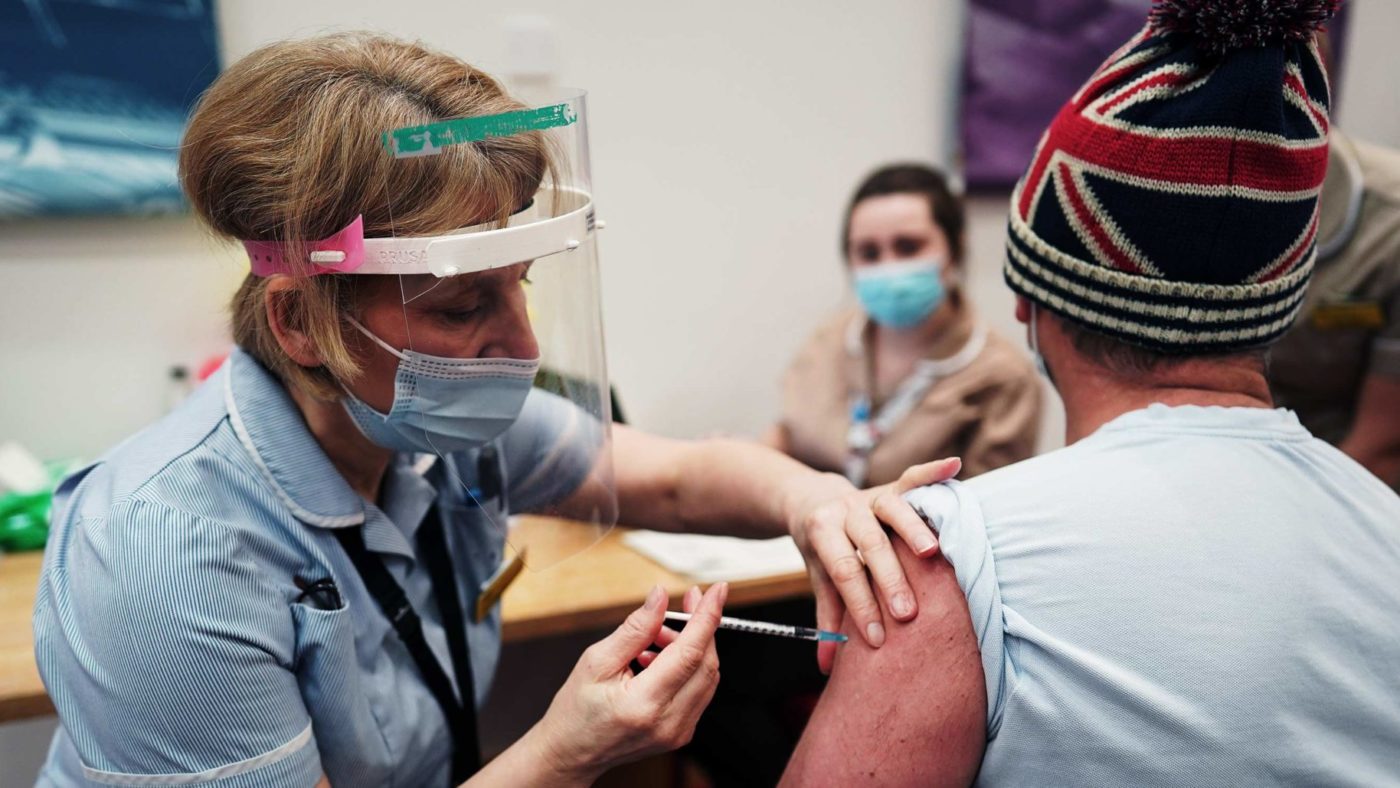If you were looking for an immediate, tangible benefit of Brexit, the rollout of Covid vaccines is an obvious candidate.
The UK’s programme may not have been perfect, but nor has it been as conspicuously cack-handed as the EU’s attempts so far. ‘Sovereignty’ might seem abstract at times, but what clearer an example of its importance than the European Commission’s absurd decision to cap the number of vaccine shots available to each member state? (The fact that Germany then went rogue and ordered 30 million extra doses from Pfizer spoke volumes about the wisdom of the EU approach.)
It’s true that, in strict legal terms, the UK could still have opted out as an EU member. But, given that every other member state has gone along with the Commission’s approach, it would have taken huge political will, and the fact we were already halfway out of the door undoubtedly made the decision easier.
As it turned out, British regulators approved the Pfizer/BioNTech vaccine three weeks faster than the European Medicines Agency, and there’s now an even longer lag with the Oxford/AstraZeneca jab, which the EMA won’t be making a decision on until the end of January (although it has now approved Moderna’s vaccine).
That has meant that as the UK passed 1.5 million vaccinations this week, the EU’s big guns were only just getting going. The European Commission played up its collective bargaining power, but speed matters more than price in this context and the EU’s slowness has been costly. (For an even starker contrast, just look at Israel, a tiny country whose vaccine performance has been stellar.)
The panic on the continent was typified by the desperate, unfounded claims from Belgium’s deputy PM that the UK is using inferior vaccines to the rest of the continent. As the German journalist Alexander von Schoenberg argued in a blistering piece, instead of criticising British efforts, Europe’s politicians should worry about the ‘delays, in-fighting [and] sheer bungling bureaucracy’ that has characterised the EU rollout so far.
Nowhere has that been clearer than France, which vaccinated just over 500 people in the first week of its programme, while the UK managed 130,000. Even supposedly efficient Germany is still well behind, so much so that Angela Merkel has contacted Vladimir Putin about scaling up production of the Sputnik V vaccine.
That said, we could be doing much better ourselves. The Government’s aim of vaccinating the 15 million most vulnerable people by mid-February sounds pretty ambitious, but as an excellent report from the Adam Smith Institute argues, with a different approach we could be going a lot faster. Given the UK’s horrendous daily death rate, that effort could scarcely be more urgent.
Even so, it’s still reasonable to suppose that our programme will be considerably faster than if we had still been a member state. And, with lockdown costing tens of billions a month, the fiscal upside of getting back to normal is enormous – much bigger than anything written on the side of any campaign coaches.
This episode also points to one of the potential longer term advantages of Brexit – the ability to move more quickly in certain areas where the EU’s excessive caution can hold it back.
One such area is biotechnology, with the Government this week announcing it will begin consultation on regulation of gene editing. Our colleague Eamonn Ives makes a compelling case that with a more liberal approach to CRISPR technology, the UK can reap huge benefits while the EU continues to operate a de facto ban on this exciting technology.
And as they size up a new regulatory approach, ministers should take some confidence from the vaccine saga that having the confidence to adopt a uniquely British approach can pay dividends.
Click here to subscribe to our daily briefing – the best pieces from CapX and across the web.
CapX depends on the generosity of its readers. If you value what we do, please consider making a donation.


